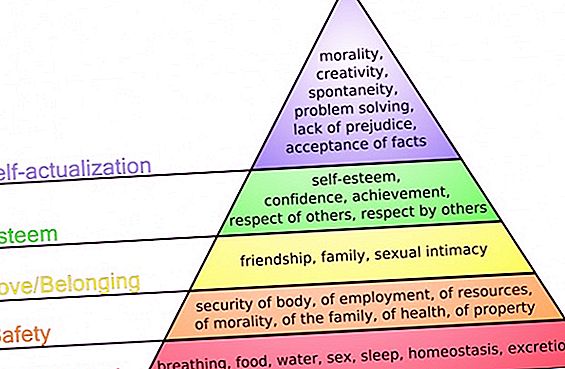Necessity is called the internal state of a person in need of something. Adhering to the classification according to the object, the needs can be divided into personal, group, collective and social. Individual needs, in turn, can be divided into several categories.

Instruction manual
one
Today, the classification of needs, created by the American psychologist A. Maslow, who developed the theory of human motivation, within the framework of which are distinguished, is considered generally accepted:
2
Physiological needs - which are the most basic - the need for oxygen, food, water, shelter, sexual satisfaction - and having an absolute priority over all other human needs.
3
Safety needs are second only to physiological ones. The concept of security, in this case, includes the category of stability. Stability implies the ability to plan, predict the probable future and the willingness to put up with a monotonous routine rather than look for unreadable changes.
4
In third place are the needs for love and belonging to someone, and love, according to the researcher, cannot be identified with sexual desire, which belongs to the category of physiological needs. The lack of love is considered by many psychologists as the main factor in suppressing personal growth and developing individual capabilities.
5
Needs for assessment, divided into the need for self-esteem (self-confidence, competence, adequacy) and the need for evaluation from others (recognition, prestige, reputation, status).
6
The need for self-actualization, defined by Maslow as "the desire to become more and more what you are, to become everything that you are capable of becoming." It should be noted that the need for self-actualization is manifested only if all the above needs are met.
7
The need for knowledge and understanding, characterized by a scientist as "curiosity" and attributed to the category of species characteristics of a person. The reasons for this conclusion are:
- thirst for knowledge that could be dangerous (Galileo, Columbus);
- thirst for the unknown;
- loss of interest in life in people who do not receive enough intellectual information;
- the natural curiosity of children;
- pleasure derived from the satisfaction of curiosity
eight
Aesthetic needs - an instinctive need for beauty, previously ignored by science, confirmed by the connection of the individual “I” with a sense of health, well-being and beauty (a person in dirty clothes feels awkward in an expensive restaurant).
9
Growth needs - directly related to everyday values, express the higher nature of man. To existential values include:
- integrity and perfection;
- completeness and justice;
- vitality and wealth of manifestations of the process of being;
- simplicity and beauty;
- good and individual identity;
- ease and tendency to play;
- truthfulness, honesty and self-sufficiency.
ten
It should be remembered that a satisfied need ceases to be a need and does not affect the motivation of a person.
- 2018 needs
- Basic human needs in 2018
